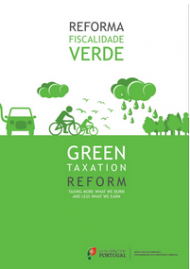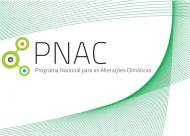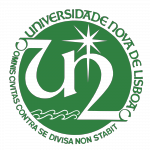Policy Support
|
RNC2050 - Roteiro para a Neutralidade Carbónica [Carbon Neutrality Roadmap for Portugal]
|
Financed by: Portuguese Envionmental Fund
Date: 2018-2019 |
|
Financed by: Portuguese Environment Agency of the Ministry of Environment Spatial Planning and Energy Date: 2014
|
|
|
PNAC 2020 - Programa Nacional para as Alterações Climáticas [National Program for Climate Change] |
Financed by: Portuguese Environment Agency of the Ministry of Environment Spatial Planning and Energy Date: 2013-2014
|
|
Financed by: Portuguese Environment Agency of the Ministry of Environment Spatial Planning and Energy Date:2013-2014 The National Strategy for air pollution 2020 defined the framework for the improvement of air quality on behalf of the protection of human health, quality of life and preservation of ecosystems. The project was structured in three axis: "Evaluate", "anticipate" and "Acting". Projections embodied in this study developed prospective future scenarios of atmospheric emissions and ambient air quality. The project included the estimation of the following pollutants: SOx, NOx, NMVOC, NH3, PM2.5 and PM10 for the horizon year 2020, in Portugal, for the different sectors of economic activity. |
|
|
Low Carbon RoadMap: Portugal 2050 - Energy and Waste Greenhouse emissions |
Financed by: Comité Executivo da Comissão para as Alterações Climáticas (CECAC) [Executive Committee of the Climate Change Commission]. Date:2011-2012 This project outlined how the transition to a low carbon economy in Portugal can be achieved, focusing on changes in the national energy system and evaluating its economic impact. The energy-economic model TIMES_PT is used to outline a -60% and -70% GHG decarbonization pathways (face to 1990) in line with the EU low carbon roadmap. |
|
New Energy Technologies: RoadMap Portugal 2050 – Analysis of new national energy technologies e impact scenarios on the national energy system
|
Financed by: Portuguese Innovation Fund for Renewable Energy of the Portuguese Ministry of Economy (FAI). Date: 2010 The project aimed to develop an Energy Technology RoadMap for Portugal up to 2050. Among other objectives it performed an analysis of new national energy technologies e impact scenarios on the national energy system, focusing on endogenous resources and performing a competitiveness assessment. |
| End-use energy demand scenarios for Portugal for 2030 |
Financed by: REN - Redes Energéticas Nacionais, SGPS, SA. Date: 2008-2009 Development of bottom-up end-use energy and materials demand scenarios for Portugal for 2030 with the ultimate objective of generating demand scenarios for electricity and natural gas. The TIMES_PT and the LEAP models were used. |
|
PORTUGAL CLIMA2020 – Impact Assessment of the EU Climate-Energy Policy Package
|
Financed by: Executive Committee of the Portuguese Climate Change Commission (CECAC) of the Ministry of Environment. Date:2007-2009 Policy support on the EU Climate and Energy Policy Package. Development of 2020 GHG national emission scenarios and assessment of technical and economic implications for different targets on emissions (ETS and non ETS) and renewable energy shares. |
| Clean Air For Europe: Technical Support to the Bilateral Meetings between Portugal and IIASA/CE |
Financed by: Environmental Institute. Date: 2003-2004 Technical support on bilateral meetings between the Portuguese Government and IIASA (in name of the European Commission) on projections of acidifying emissions, under the revision process of EU Directive 2001/81/EC. |
| PTEN – Programa para os Tectos de Emissão Nacionais (National Emission Ceilings Programme) and PNAC – Programa Nacional para as Alterações Climáticas (National Climate Change Programme) |
Financed by: Portuguese Environment Agency. Date: 2002-2004 Development of the Programme on National Emission Ceilings (SO2, NOx, VOCs, NH3) established by the EU Directive 2001/81/EC, and of the 2004 Portuguese Climate Change Programme in cooperation with CEEETA. |
| Development of future scenarios of greenhouse gases emissions in Portugal and assessment of mitigation policies and measures |
Financed by: Ministry of Environment. Date: 2001-2003 This work was transposed as a document of the Portuguese Government (RCM n.º 119/2004, de 15/07/2004) |
|
|








